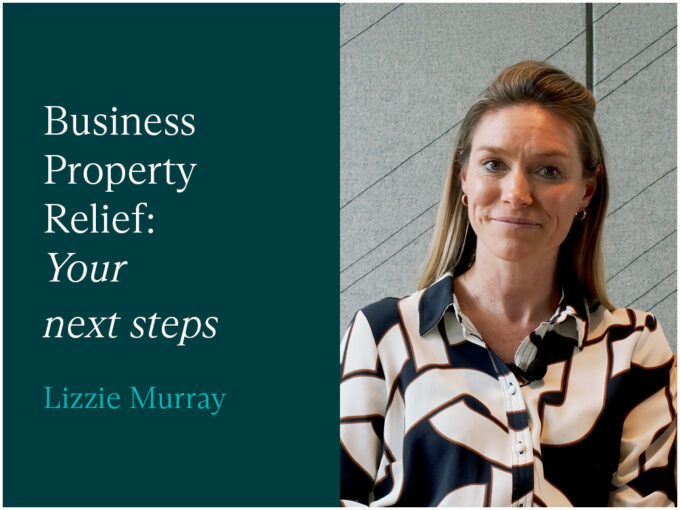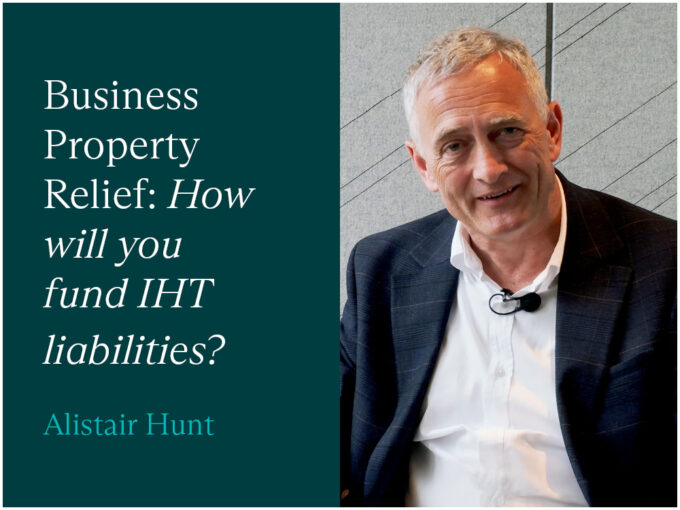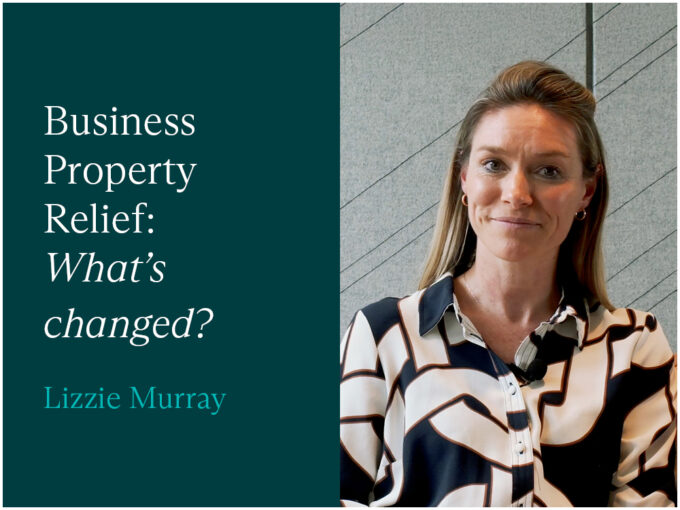As the 2024-25 tax year draws to a close, and with significant tax changes coming from 6 April 2025, now is a great time to take control of your tax affairs.
Our list of top ten tax tips will help you and your business maximise available reliefs and allowances. It also highlights some of the upcoming changes to the tax system that could affect you.
End of tax year 2024-25 tips
- Furnished holiday lettings
- Non dom tax regime
- National Insurance contributions
- Double cab pick-ups
- Business Asset Disposal Relief (BADR)
- Agricultural Property Relief
- Salary sacrifice
- Corporate tax roadmap
- Visual effects tax relief
- HMRC late payment interest rates
Furnished holiday lettings: What the abolition of the regime means for you
Before 6 April 2025, a property that qualifies as a furnished holiday letting (FHL) can benefit from various tax reliefs not available to other rental property businesses. These benefits include:
- Being able to obtain full relief for finance costs,
- Being able to claim capital allowances on furniture and equipment,
- Treating FHL profits as earned income for pension contribution purposes,
- Not having to divide the profits of a jointly owned FHL based on the ownership split, and
- The potential to claim various capital gains tax (CGT) reliefs and inheritance tax (IHT) Business Property Relief (BPR), subject to extra conditions.
From 6 April 2025, the special rules for FHLs are being abolished. Existing FHLs will be treated the same as other rental property businesses, and therefore none of the above benefits will continue to apply past this date.
With the upcoming changes to the FHL rules, it’s crucial to take proactive steps to maximise your benefits. Here are some ideas:
- If you’re thinking about selling your FHL, doing so before 6 April 2025 could allow you to claim Business Asset Disposal Relief (BADR). This means you might pay CGT at 10% instead of 24%.
- If you can’t sell your FHL before 6 April 2025 but still want to benefit from BADR, you need to stop renting it out as an FHL before this date. You then have three years to complete the sale. Note that the rates of CGT on gains subject to BADR will increase to 14% from 6 April 2025 and to 18% from 6 April 2026.
- Check whether you would benefit from making an election to split the profits based on the ownership split, rather than the default 50:50.
- Consider how to use any losses. From 6 April 2025, brought forward FHL losses will be converted into normal UK or foreign property losses. This means you can set them against profits from other property income, not just FHL profits.
- Be aware of the anti-forestalling rules which prevent the use of unconditional contracts to obtain CGT reliefs under the pre-6 April 2025 FHL rules if the contract is entered into between 6 March 2024 and 5 April 2025 and the property is transferred after 5 April 2025. These anti-forestalling rules don’t apply if the contract wasn’t intended to avoid the FHL rule changes, and was made for commercial reasons or between unconnected parties.
Equivalent changes are being made for FHLs chargeable to corporation tax rather than income tax.
For more on this topic, see our Furnished Holiday Lettings tax regime article. If you’d like to talk about the FHL changes, please talk to your usual Saffery contact or get in touch with Zena Hanks.
Non dom tax regime: Prepare for the abolition of the regime
From 6 April 2025, extensive reforms will replace the current tax regime for UK resident, non-UK domiciled individuals (non-doms). These changes are far-reaching and will significantly impact the tax position of both non-doms and UK domiciled individuals who have spent time outside the UK.
We’ve got separate articles on the:
- Income tax and capital gains tax reforms,
- Inheritance tax changes, and
- Changes to the taxation of trusts.
If you’re affected by the changes, we encourage you to urgently review your affairs and contact Alexandra Britton-Davis, Steven Coelho or your usual Saffery contact to discuss the options available to you ahead of 6 April 2025.
National Insurance contributions: Pay for any missed years
Men born on or after 6 April 1951 and women born on or after 6 April 1953 can claim the new State Pension when they reach retirement age. To get any new State Pension you usually need 10 qualifying years on your National Insurance record and to get the maximum you must usually have about 35 qualifying years (it may be more if you were contracted out).
A qualifying year will usually be one in which you were:
- Working and made National Insurance contributions (NICs),
- Getting National Insurance credits, such as if you were unemployed, ill or a parent or carer, or
- Paying voluntary NICs.
If you’ve got gaps in your National Insurance record, you may be able to pay voluntary Class 2 or 3 NICs, to increase the amount of new State Pension you can get.
You can check your State Pension forecast to find out how much you could get when you reach State Pension age and to see your National Insurance record.
You can usually pay voluntary NICs for the previous six tax years. For example, you can make voluntary contributions up until 5 April 2030 to make up gaps for the 2023-24 tax year.
For men born on or after 6 April 1951 and women born on or after 6 April 1953 the deadline for making payments to fill in gaps in your National Insurance record between 6 April 2006 and 5 April 2018 has been extended to 5 April 2025. After this date you’ll only be able to make payments for the previous six tax years.
If you might benefit from paying voluntary NICs, ahead of the 5 April 2025 deadline you should:
- Check your National Insurance record using the HMRC app or online service.
- Check whether you will benefit from making voluntary NICs and if so how much you should pay.
- If you choose to pay, use the ‘pay by bank account’ option for quick and reliable payment processing.
Gov.uk has more information on voluntary National Insurance contributions, or speak to your usual Saffery contact.
Double cab pick-ups: Make the most of the beneficial treatment before its gone
From April 2025, HMRC will no longer use the VAT definitions of ‘car’ and ‘van’ to classify double cab pick-ups for benefit in kind (BIK) and capital allowance purposes, or when restricting car hire costs for calculating business profits. Instead of treating double cab pick-ups with a payload of one tonne or more as vans, the classification will be based on the vehicle’s primary suitability when it’s made available. With only vehicles “of a construction primarily suited for the conveyance of goods or burden of any description” being classified as vans, most (if not all) double cab pick-ups will be treated as cars.
Given this change you may face:
- Higher BIK charges and Class 1A NIC: From 6 April 2025, employees using double cab pick-ups for personal use will face higher BIK charges. Consequently, employers will have more Class 1A National Insurance contributions (NICs) to pay. This will apply to both the use of the vehicle itself, which will be based on the vehicle’s list price and CO2 emissions, and for fuel for private journeys. By comparison the BIK for a van in 2025-26 would be £4,020 for the vehicle and £769 for the fuel. Transitional rules apply to double cab pick-ups bought, ordered or leased before 6 April 2025, allowing businesses to rely on the previous treatment until the earlier of the vehicle’s disposal, the end of the lease, or 5 April 2029.
- Reduced capital allowances: From 1 April 2025 for corporation tax and 6 April 2025 for income tax, businesses buying double cab pick-ups won’t be able to claim the same level of capital allowances as when these vehicles were classified as vans. For instance, a new van may qualify for 100% full expensing, whereas cars cannot. Transitional rules apply to expenditure incurred on double cab pick-ups as a result of contracts entered into before 1 April 2025 for corporation tax and 6 April 2025 for income tax, where the expenditure is incurred on or after that date but before 1 October 2025. In such cases the old treatment will apply.
- Leasing restrictions: From 1 April 2025 for corporation tax and 6 April 2025 for income tax, businesses leasing double cab pick-ups with CO2 emissions of more than 50g/km – in practice, this will be virtually all of these types of vehicles – will only be able to get relief for 85% of the costs, compared to previously being able to deduct the full cost. Transitional rules apply to expenditure incurred on the hire of double cab pick-ups where the contracts for hire are entered into before 1 April 2025 for corporation tax and 6 April 2025 for income tax, and the expenditure is incurred on or after these dates but before 1 October 2025. In these cases, the old rules will apply.
Particularly given the transitional arrangements, you may be able to take advantage of the reliefs before they go.
Example
An employer orders a double cab pick-up on 3 March 2025, but the vehicle isn’t available until 1 September 2025. As the pick-up was ordered before 6 April 2025, the previous rules continue to apply for BIK purposes until the earlier of the vehicle’s disposal, lease expiry, or 5 April 2029.
The rules for reclaiming VAT when buying double cab pick-ups are unchanged.
If you’d like to talk about the implications of this change on employment taxes or capital allowances, please talk to your usual Saffery contact or get in touch with Stuart Daltrey or Sean Watts, respectively.
Business Asset Disposal Relief (BADR) and Investors’ Relief: Take advantage of the reliefs before they are reduced
Business Asset Disposal Relief (BADR) and Investors’ Relief offer valuable opportunities to reduce capital gains tax (CGT) when investing in trading businesses. BADR is available to individuals disposing of their personal business or interests in a partnership, as well as directors and employees selling shares in the company they work for. Investors’ Relief is available to individuals disposing of qualifying shares in unlisted trading companies, where the individual is neither a director nor employee of the company. In some circumstances trustees can also benefit from these reliefs.
Both BADR and Investors’ Relief reduce the CGT rate on qualifying gains compared to the standard CGT rate. Each relief is capped at a £1 million lifetime limit on gains. Considering the announcements from the Autumn Budget 2024, the maximum potential savings for each relief are as follows:
Example
Sam is planning to sell shares in her own company in spring 2025. She’s a higher rate taxpayer, the gain on the sale is £600,000, the disposal qualifies for BADR and she makes no other chargeable disposals in 2024-25 or 2025-26.
Depending in which tax year the disposal is made Sam’s CGT liability will be calculated as follows:
Anti-forestalling rules apply to certain share reorganisations and also where a contract for sale is made between 30 October 2024 and 5 April 2026 and completed on or after 6 April 2025.
Given the reductions in the benefits of these reliefs from 6 April 2025 and again from 6 April 2026, if you’re considering selling assets that qualify for BADR or Investors’ Relief, you should carefully time your transactions to maximise the relief.
For more about these reliefs see our articles on Business Asset Disposal Relief (BADR) and Investors’ Relief. For advice about the reliefs please speak to your usual Saffery contact or get in touch with Adam Kay or Zena Hanks respectively.
Agricultural Property Relief: Extended scope of this inheritance tax relief
In the Autumn Budget 2024, it was confirmed that Agricultural Property Relief (APR) is being extended from 6 April 2025 to include land managed under an environmental agreement with, or on behalf of:
- The UK government,
- Devolved governments,
- Public bodies,
- Local authorities, or
- Approved responsible bodies.
If you’re a landowner and have previously been worried about moving into environmental schemes for fear of losing the availability of APR, now might be the time to reconsider. However:
- The extension will be limited to certain schemes and therefore not all land put to environmental use will necessarily qualify, and
- Beware of the more extensive changes being made to APR (and Business Property Relief) from 6 April 2026.
If you’d like to discuss Agricultural Property Relief, please get in touch with your usual Saffery contact or speak to Peter Harker.
Salary sacrifice could offset your National Insurance contributions
From 6 April 2025, the earnings threshold above which employer National Insurance contributions (NICs) are payable will reduce from £9,100 to £5,000, and the NIC rate for employers will rise from 13.8% to 15%. These changes mean that many employers will face significantly higher NIC costs.
Example
An employee earning £35,000 a year will cost their employer an additional £926 a year from 6 April 2025:
- £615 because of the reduced earnings threshold (£9,100 – £5,000 × 15%), and
- £311 because of the higher NIC rate (£35,000 – £9,100 × 1.2%).
Businesses may also have higher employment costs due to substantial increases in the National Minimum Wage and National Living Wage from 1 April 2025.
A salary sacrifice arrangement is when an employee chooses to give up part of their salary in exchange for a non-cash benefit. This changes the employee’s terms and conditions of employment.
For employers, a salary sacrifice arrangement can lead to significant cost savings because they don’t have to pay NICs on the pre-tax salary that employees sacrifice. Also, offering salary sacrifice can make a business more attractive to current and potential employees, which can help with staff retention and productivity.
For employees, a salary sacrifice arrangement can result in tax savings, as they pay less income tax and NICs on their reduced salary. Depending on the benefit provided, they might not pay tax on the non-cash benefit, which can increase their take-home pay and improve their overall reward package.
Given that salary sacrifice arrangements save employers NICs, the increased rate and lower starting threshold mean greater savings for employers who use salary sacrifice. These savings can help offset some of the increased NIC costs.
To find out more about salary sacrifice arrangements or employment taxes in general, please get in touch with your usual Saffery contact, or talk to Stuart Daltrey.
Corporate tax roadmap: Should you change your capital investment strategy?
On 30 October 2024, alongside the Budget, the government published a corporate tax roadmap outlining its plans for corporation tax for this Parliament.
Regarding capital allowances, the government has committed to:
- Keeping permanent full expensing, the £1 million annual investment allowance, writing down allowances, and the structures and buildings allowance,
- Providing clearer guidance on what qualifies for different capital allowances,
- Simplifying the capital allowances system,
- Reviewing the treatment of predevelopment costs, following the 2023 Gunfleet Sands Ltd v HMRC decision (in which the Upper Tribunal decided that capital allowances could not be claimed on various environmental and technical studies undertaken before the construction of offshore windfarms, as of March 2025 this decision has since been substantially overturned in the Court of Appeal), and
- Considering extending full expensing to assets bought for leasing or hiring “when fiscal conditions allow”.
The commitments to maintain full expensing and the £1 million annual investment allowance are likely to last until at least early 2029. By providing stability and predictability to these allowances the government hope that businesses will make investments which it considers are critical to boosting growth in the UK.
You may also be interested in taking advantage of the extension of 100% first year allowances for zero-emission cars and electric vehicle charging points until 31 March 2026 for corporation tax and 5 April 2026 for income tax. These allowances were due to end of 31 March 2025 and 5 April 2025 respectively, and note that this is still the end date for zero-emission goods vehicles.
If you’d like to discuss how to maximise the available capital allowances or the corporate tax roadmap please talk to your usual Saffery contact or get in touch with Sean Watts or Zoe Thomas, respectively.
Additional tax relief for visual effects: Can your company benefit?
From 1 April 2025, film and high-end television companies can claim an enhanced 39% rate of Audio-Visual Expenditure Credit (AVEC) on their UK visual effects (VFX) costs, for expenditure incurred from 1 January 2025.
UK visual effects costs will also be exempt from the Audio-Visual Expenditure Credit’s 80% cap on qualifying expenditure.
To qualify for the VFX uplift, film and high-end TV production will need to meet the existing eligibility criteria of the Audio-Visual Expenditure Credit. ‘Relevant visual effects work’ for the additional relief refers to “work consisting of the use of computer technology to create or alter images for inclusion in the film or programme”.
Claims must include evidence of qualifying expenditure, with more details expected before 1 April 2025 about exactly what must be provided.
For more see our additional tax relief support for the UK’s visual effects sector article, and if you have any questions about your eligibility for claiming the VFX uplift, please speak to your usual Saffery contact or Stephen Bristow.
Tax payments: Ensure your payments are up to date before HMRC ups its interest rates
From 6 April 2025, the interest payable on unpaid tax due to HMRC will increase by 1.5 percentage points (from the Bank of England base rate plus 2.5 to base rate plus 4).
Given the Bank of England Monetary Policy Committee cut the base rate to 4.5% on 6 February 2025, the rates will increase as follows:
Given the increasing interest rates it’s even more important to ensure you pay your taxes on time to avoid higher interest charges. Additionally, timely payments can help prevent penalty charges.
There are no equivalent increases in repayment interest rates. And the rate of interest on late payments to Revenue Scotland and the Welsh Revenue Authority continue to be base rate plus 2.5.
If you know you’re going to have a problem paying your tax on time, please talk to your usual Saffery contact as you may be able to agree a time to pay (TTP) arrangement with HMRC. Although a TTP arrangement doesn’t stop interest being charged it may prevent non-payment penalties.
Don’t forget the basics
In addition to the above suggestions, don’t forget basic tax planning ideas such as:
- Using your lower rate bands, dividend allowance, personal savings allowance, CGT annual exemption and IHT annual exempt amount,
- Making tax efficient investments,
- Making pension contributions and Gift Aid donations,
- Ensuring losses are used efficiently,
- Considering the timing of transactions,
- Claiming all available reliefs,
- Tax efficient extraction of business profits, and
- Group tax planning.
Looking further ahead
- Prepare for the significant changes to inheritance tax (IHT) Agricultural Property Relief (APR) and Business Property Relief (BPR) from April 2026.
- Ensure you’re ready for Making Tax Digital for income tax (MTD ITSA), which you may need to use from April 2026.
- If you’re an employer, ensure you’re prepared for the mandatory payrolling of benefits in kind from April 2026.
- Check whether your business will have to pay tax on imports of emission intensive goods because of the UK Carbon Border Adjustment Mechanism (CBAM) being introduced in January 2027.
- Consider pension funds when estate planning, as from April 2027 pension funds and death benefits will be subject to IHT on a taxpayer’s death.
Some of these ideas are based on government announcements which haven’t yet been legislated.
How we can help
For personalised tax planning advice or to discuss other upcoming tax changes not covered in this article, please speak to your usual Saffery contact or get in touch with Sean McGinness.
Contact Us
Partner, Edinburgh
Key experience











